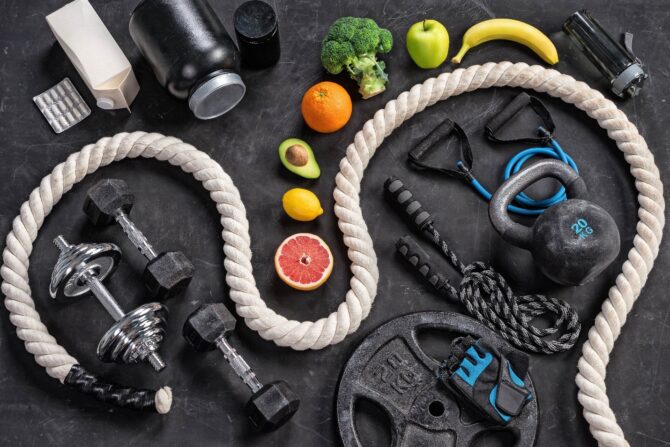Kevin Morgan of Pittsford NY is a strong advocate for the importance of macronutrients—carbohydrates, proteins, and fats—in providing the necessary fuel for energy production, muscle repair, and overall performance during cross-training workouts. Through comprehending the roles these macronutrients play, athletes can tailor their diets to meet the demands of their training regimens.
Carbohydrates: The Primary Energy Source
Carbohydrates are the body’s primary source of energy, especially during high-intensity workouts. They are broken down into glucose, which is used by the muscles for immediate energy or stored as glycogen in the liver and muscles for later use. For cross-training athletes, consuming a sufficient amount of carbohydrates is crucial for maintaining energy levels and enhancing performance.
During intense cross-training sessions, the body depletes its glycogen stores rapidly. To replenish these stores and prepare for subsequent workouts, it’s essential to consume carbohydrates both before and after exercise. Pre-workout carbohydrates provide the energy needed to sustain high-intensity efforts, while post-workout carbohydrates aid in the recovery process by restoring glycogen levels. Complex carbohydrates such as whole grains, fruits, and vegetables are recommended for sustained energy release, whereas simple carbohydrates like sports drinks and gels can provide quick bursts of energy during workouts.
Proteins: The Building Blocks of Muscle Repair
Proteins play a vital role in muscle repair and growth, making them indispensable for cross-training athletes. During exercise, muscle fibers undergo stress and microscopic damage, which require repair and rebuilding to become stronger. This process is facilitated by amino acids, the building blocks of protein.
Adequate protein intake ensures that the body has the necessary resources to repair and build its muscle tissue. Consuming protein-rich foods such as lean meats, dairy products, legumes, and plant-based protein sources after workouts can significantly enhance recovery. For optimal muscle repair and growth, it’s recommended to consume 20-30 grams of protein within 30 minutes to two hours post-exercise.
Protein is not only crucial for muscle repair but also for overall athletic performance. By maintaining muscle mass and supporting recovery, protein helps athletes perform at their best during each training session. Additionally, protein can aid in preventing muscle loss during periods of caloric restriction, which is particularly important for athletes looking to maintain a lean physique.
Fats: Sustained Energy and Nutrient Absorption
While carbohydrates are the primary energy source for high-intensity exercises, fats provide a sustained source of energy for longer, lower-intensity workouts. Fats are broken down into fatty acids, which are then used by the muscles for energy. For cross-training athletes, incorporating healthy fats into their diets will support endurance and overall performance.
Healthy fats, such as those found in avocados, nuts, seeds, and olive oil, play several important roles beyond energy production. They aid in the absorption of fat-soluble vitamins (A, D, E, and K), which are essential for various bodily functions, including bone health, immune function, and inflammation reduction. Furthermore, fats help in maintaining healthy cell membranes and producing hormones that regulate various physiological processes.
However, balancing fat intake is crucial; while fats are essential, they are also calorie-dense. Overconsumption can lead to unwanted weight gain, which may negatively impact athletic performance. Therefore, athletes should focus on incorporating moderate amounts of healthy fats into their diets, tailored to their individual energy needs and training demands.
Hydration: The Unsung Hero
While not a macronutrient, hydration is an equally important aspect of nutrition for cross-training athletes. Proper hydration ensures optimal physiological function, including temperature regulation, joint lubrication, and nutrient transport. Dehydration can lead to decreased performance, muscle cramps, and even serious health risks.
Athletes should aim to stay hydrated throughout every day, not just during workouts. Drinking water regularly and consuming electrolyte-rich beverages during intense or prolonged exercise can help maintain fluid balance. Monitoring urine color is a simple way to gauge hydration status—pale yellow indicates adequate hydration, while dark yellow suggests the need for more fluids.
Understanding the science of nutrition and the roles of macronutrients is crucial for optimizing performance, recovery, and overall health for cross-training athletes. Carbohydrates provide the primary energy needed for high-intensity efforts, proteins support muscle repair and growth, and fats offer sustained energy and aid in nutrient absorption. By tailoring their diets to include the right balance of these macronutrients, athletes can enhance their training outcomes and achieve greater fitness goals.
Kevin Morgan of New York highlights the importance of a well-rounded approach to nutrition, emphasizing that each macronutrient plays a unique and essential role in supporting athletic performance. By incorporating these principles into their nutritional strategies, cross-training athletes can fuel their workouts effectively and pave the way for long-term success.
